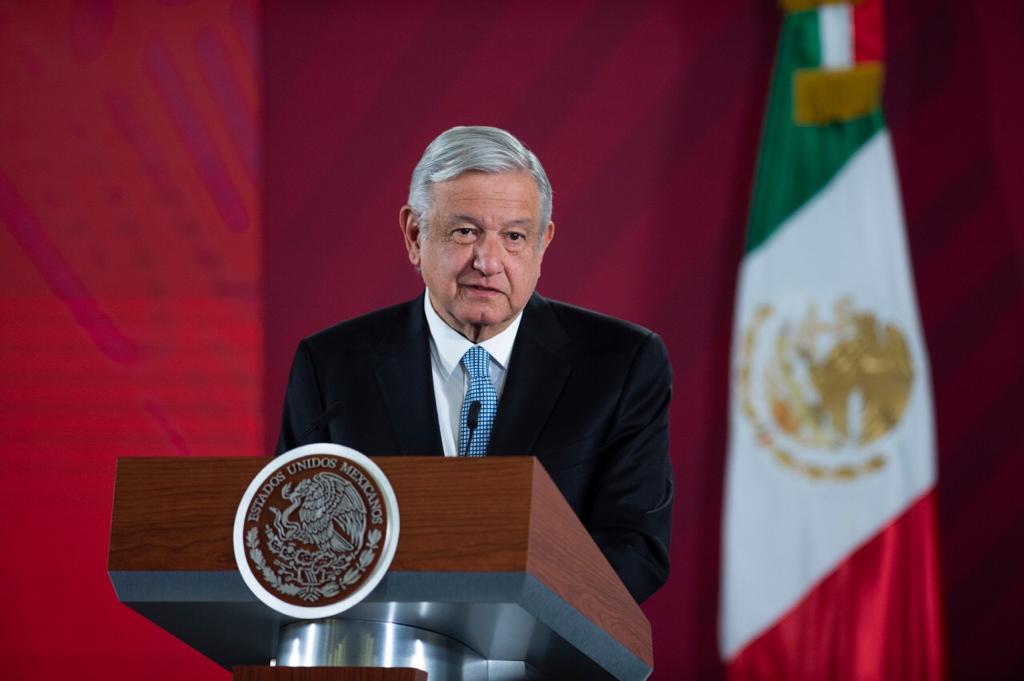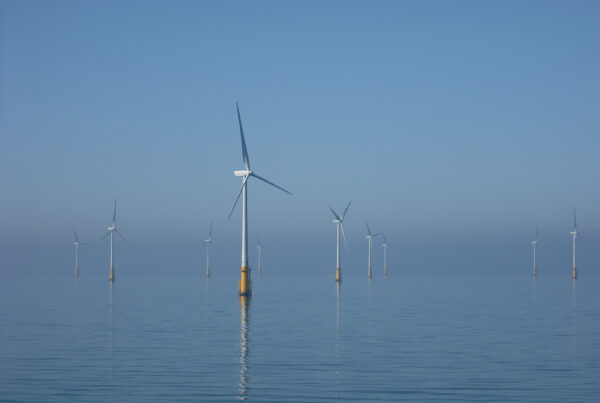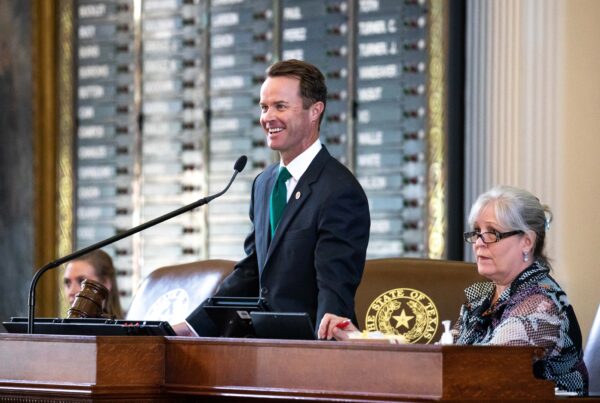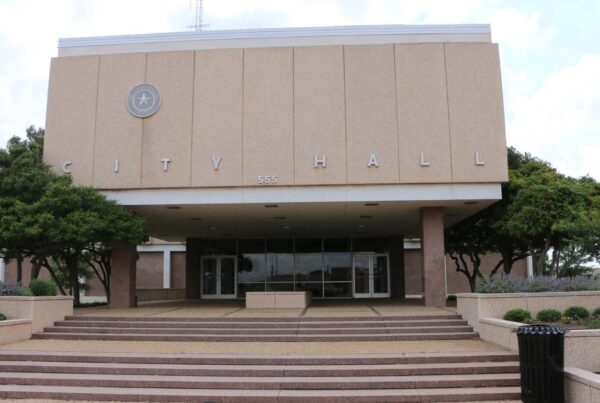For most of the 20th century, Mexico was ruled by just one political party: The Revolutionary Institutional Party, also known as the PRI.
For decades, the PRI controlled elections, undercut opposition and remained in control so effectively Mexico earned the nickname “the perfect dictatorship.” Sure, there were elections, but the PRI always won. Then in 2000, that changed.
After more than 70 years of uninterrupted rule, the PRI lost, ushering in a new age of Mexican politics, one in which political power changes hands. In other words, Mexico became a democracy. But that is in serious danger of changing for the worse, at least according to author and commentator David Frum in a new story for The Atlantic.
He joined the Texas Standard to make the case that Andrés Manuel López Obrador, or AMLO, is becoming an autocrat. Listen to the story above or read the transcript below.
This transcript has been edited lightly for clarity:
Texas Standard: AMLO has been president since December 2018. Why do you think that Mexico’s now reached a sort of tipping point that could determine its future?
David Frum: Mexico has a very powerful president within an unfortunately weak state. The great check on the authority of the president is Mexico’s esteemed and independent system of running elections – it’s overseen by a body that is not under the president’s control. And it’s been AMLO’s goal from becoming president to break the power of Mexico’s independent electoral authority and bring back the old days where the president told the voting system the results he wanted and the voting system delivered the result the president wanted.
In fact, it’s my understanding that this week the president took steps to undermine that very body you are referring to.
Yes, the first thing he tried to do was pass a constitutional amendment getting rid of the independent body. When that failed, he then passed an ordinary law which just cleared the Senate just this week that would chop away a lot of the group’s funding. This body does a lot of important things in Mexico, including issuing the identity card that Mexicans rely on. It has a presence in every one of the 900 voting constituencies. So that costs some money. When you chop away the funding, you put local government officials who answer to the president back in charge of running elections, as in the one-party state days.
David, we’ve often heard AMLO described as a “left wing leader.” You say that that whole “left versus right” way of thinking here in the U.S. isn’t really useful when it comes to understanding what AMLO is doing right now. Why not?
Because his goal is to consolidate power in his own hands. Now, sometimes these people attack foreigners, sometimes they attack poor people, sometimes they attack rich people, sometimes they attack gay people. So people say, “depending on who the targets that you’re trying to exploit are, you’re left right wing or right wing.” But the project is always the same. Find some hatred, use it, and use that hatred to consolidate power in your own hands. All of these people belong to the same family, whatever rhetoric they use.
Well, what is that axis of hate that you’re talking about that AMLO is trying to exploit?
Look, Mexico is a divided society. It’s an unequal society. It’s a society that has failed to realize many of the opportunities that were created by the North American Free Trade Agreement. I mean, I point out in the article that if the Mexican economy had grown since 1994 at one fourth the pace of the Chinese economy, Mexico today would have caught up to the standard of living in France. It could be a fully developed society. That didn’t happen. And of course, people are upset about it and looking for answers and looking for things to blame. But what AMLO tells them, well, “people are doing this to you,” not “we didn’t have enough economic reform.” He’s saying Mexico did too much and the answer is to put the power in the hands of one man who will make Mexico great again.
Well, then, is he blaming the Americans? Is he blaming the wealthy in Mexico?
Well, exactly. He blames vague causes. He uses the term “neoliberalism.” He attacks the rich people of Mexico City. But it’s important to understand he doesn’t have much of a social reform agenda. Mexico taxes at about half the rate of a normal industrial society, only about 16% of the economy the state ends up in taxes. He has created some new social programs, but he’s destroyed others. He spent most of his money on big, showy mega-projects, oil refineries, an environmentally destructive train, and a fiasco with the Mexico City airport. He’s not a social reformer at all. He’s a power consolidator.
What does this mean for Obrador personally? And do you see him sort of hand-picking successors and that sort of thing?
Yeah, the taboo on Mexican president’s seeking reelection after their six-year term is very powerful. And I think it would take quite a crisis to enable him to overstep that taboo. Not that he’s not capable of it, but I don’t think it will be feasible. What he hopes to do in 2024 – the election will be in the summer of 2024 – is hand select a compliant successor. And then rig the voting system so that he can get that successor into office, whether that successor is popular or not. The risk is the state is losing control over much of the territory of the country. There’s anarchy in many of the provinces. And if you have an illegitimate president, how does the state assert legal authority over the whole country?
We have to talk about how this is going to impact the U.S. Obviously, there’s a lot of people here in Texas who are focused on what’s happening with that massive border with Mexico – what’s happening with immigration, border security, one of the biggest political issues here in Texas. It doesn’t seem like there’s been a major change in how the Biden administration is approaching AMLO. And yet this is all happening under President Biden’s watch, this tipping point that you’re describing.
Yeah, unfortunately, there has been a lot of continuity between President Trump and President Biden on Mexican issues. Both of them have had a very transactional approach. They want specific things – immigration control, Trump wanted some agreement to make NAFTA more protectionist, Biden wants to sell more genetically modified corn. They’ve got their deliverable list. And they’ve lost sight of the fact that by far supreme interest is a stable, successful, peaceful, prosperous Mexico. We haven’t said or done much as Mexican democracies come unstuck.
Well, let’s say that you have President Biden’s ear for a moment, and clearly this article in The Atlantic is going to catch a lot of people’s attention. What do you say we need to do from a policy perspective that could affect things?
Well, at this point, it’s a little late for the president of the United States to do anything, because if Biden speaks up now, then he creates an opportunity for López Obrador to use anti-American feeling as a resource for his own bid for power. But what everyday Americans can do is just follow the story and show that you care. I mean, Mexican liberals and Democrats need to know they’re not alone and that they belong to a global democracy movement. You know, there’s a sad saying that Americans will do anything for Mexico except to read about it. Read about it.
One other thing I should ask you, David. A lot of listeners here in Texas have roots and ties to Mexico, and they may be listening to us talk right now and think, “well, not entirely unexpected: A president chosen by the majority of the Mexican people gets more powerful and the American political elite get scared.” What would you say to them?
What I would say to them is Mexico is a country of enormous opportunities that has sent, what, something like one out of every nine living Mexican-born people resides outside Mexico. It can’t create wealth for its own people. If it had the chance on the trajectory it was on in 1994 today – to be a fully developed society, if it had a standard of living like France – you could have an open border. It could be like the U.S.-Canada border. You wouldn’t be worried. You know, between the United States and Canada, there are about as many migrants who go from Canada to the United States as go from the United States to Canada. You don’t have to guard the border because you have similar kinds of societies on either side.
That was the project in the 1990s. It could still happen. And López Obrador is trying to drag Mexico back into a reactionary past that makes Mexico more separate from the United States when it needs to be more together.














